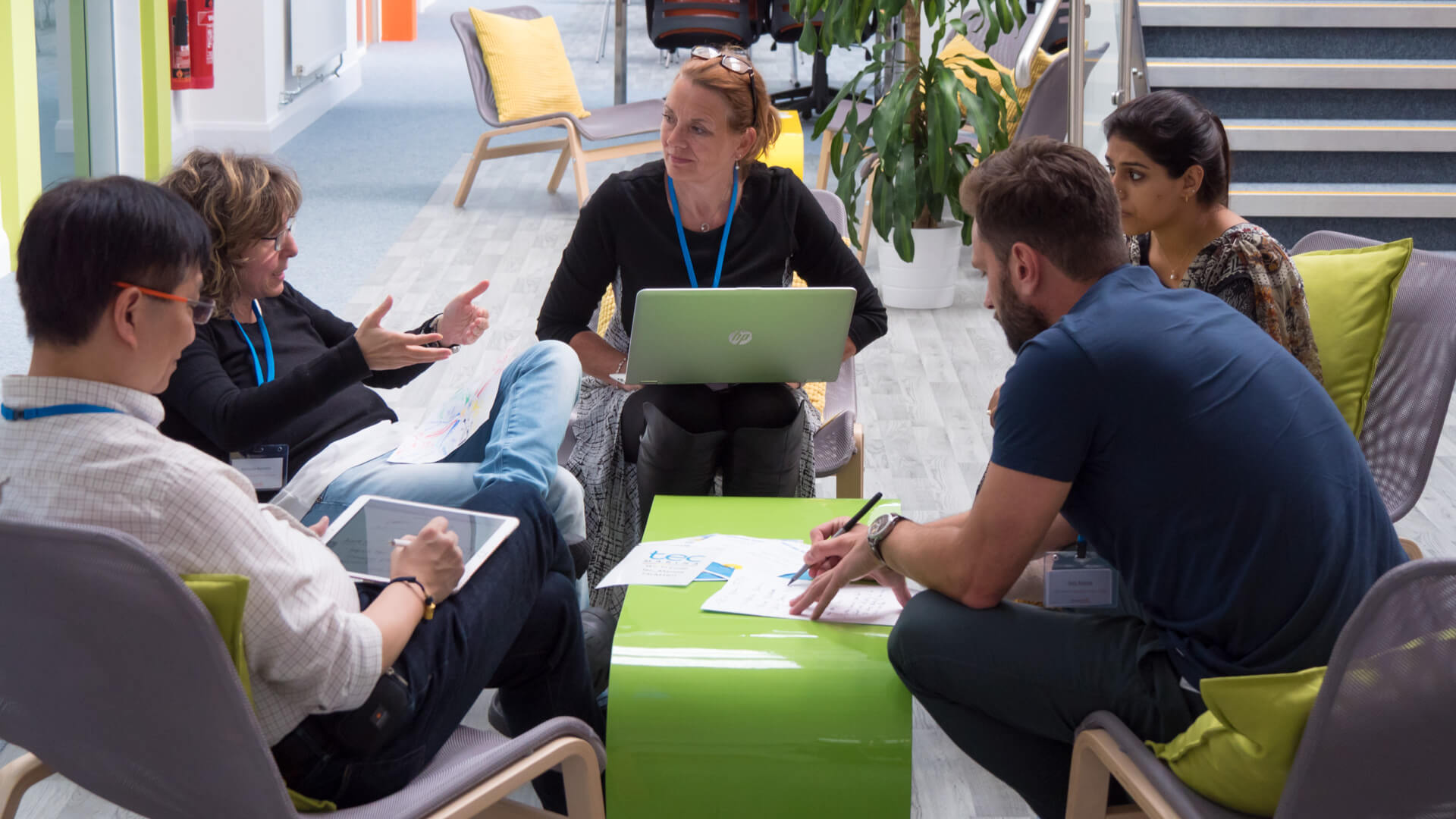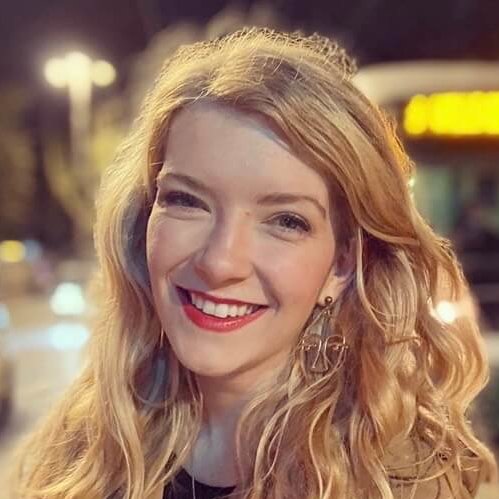August 28, 2019
The future of coaching: Ayoa case study from Sharon Curry

Sharon Curry is a Design Thinker and Executive Leadership Coach with over 30 years of experience in her field. With an insightful perspective on the coaching industry, discover why Sharon thinks Ayoa facilitates the future of coaching.
“I love people, I love teams, I love efficient collaboration – these are just a few of the reasons I do the work I do. Mind Mapping has been a key part of the way I work with my clients for a long time now. It helps me, and it helps those that I am coaching.
I first learned about Mind Mapping when I was in the Royal Navy. Two young lieutenants were running a presentation skills course and taught us various techniques during the week we were ‘obliged’ to spend with them. The final thing we learned was how to Mind Map. Our Instructors told us that passing the course depended completely on our own presentation, and they weren’t giving us the topics until 20 minutes beforehand. All we had to do was ‘map’ our thoughts and then present. What a challenge! My topic that day was a fork! I surprised myself by how easy it was to ideate using the Mind Mapping technique – I’m happy to say I got 100% pass and I could still do the presentation now!
Truthfully, I didn’t reconnect with Mind Mapping again until many years later, but when I did, I found it perfectly suited to my work and most importantly to my coaching. Mind Mapping is part of my USP – I use it for everything, from taking minutes to mapping out initial ideas in a first session. I call myself a walking Mind Map!
I work with individuals and teams at all levels, CEOs, middle managers and the workforce – I’m currently using Ayoa’s mapping and visual management tools with a senior leadership team I’m working with. They don’t consider themselves to be creative, but of course, I know they are! I’ve introduced Ayoa to them, rather like those Navy Lieutenants introduced Mind Maps to me, to help bring that creativity out but with the modern twist of collaborative software efficiency!
Ayoa improves the whole coaching experience! I use it to capture and qualify information with my client initially, then in each session we co-create; giving far greater balance between myself and my client. They own the work (and the maps) we do and can use the full power of the Ayoa experience to enhance their own. Prior to Ayoa I would Mind Map by hand in a coaching session, produce a digital version and send it to the client to check my interpretation and our focus. The main problem with this was that I was, really, the sole owner of the Mind Map, the onus of work was placed on me, which meant my client could disconnect. I’d also ask a client to have a quick brush-up on the work we did in the session prior to the next, but inevitably life gets in the way and they often forgot. That meant I spent the first 10 minutes (or more) of the next precious hour going over old ground, not cost effective! Sessions now are much more productive – it’s really helpful to be able to send my client a reminder ahead of the session – and in a task format too. When you’ve been sent a task with a deadline, that’s harder to ignore than a “checking in” email so, naturally, clients are more prepared for their session and can actually get more out of it. The whole process is streamlined and integrated – two important words in the coaching field.
One of the first things I coach for with leaders is time management; you can’t coach for any change when someone’s head is full. With Ayoa I can create a time management template that’s actually actionable, my clients can jump right in and learn by practising straight away. Working this way accountability is immediate. Take a feature like ‘Idea Bank’ – I can ask questions, but then ask the person I’m coaching to actually organise their answers out into a map. That helps them become acquainted with the Mind Mapping process and includes them in the action – which is important, because coaching is action orientated.
Ayoa really helps with behavioural changes. Generally, coaching will focus on changing or improving 1 or 2 behaviours at a time – any more than that and it gets too much. But to really make a difference there has to be a process – one that can be applied to any other desired change. As well as the behaviour I am coaching for, there are other behaviours which feed into it: thinking training, communication training even process training in itself. I combine these things because they make sense together. Ayoa provides the form and process needed for change to happen.
I find Ayoa also really helps with extending something a lot of coaches will be familiar with, the marvellous “aha!” moment clients can have when we work with them. Unfortunately the impact of those moments can be lost between sessions (which is when a lot of coaching growth should happen), because of the pressure of work systems, culture and peers. Having a system like Ayoa, freely accessible, which can map and track the thought process a client was having during a moment of inspiration, really helps with keeping them connected to that moment, thereby extending learning and growth opportunity.
At the same time we, as coaches, have a duty of care to our clients, behaviour change can be difficult, soul-searching work. Ayoa really assists with that. Between sessions, we can both check into Ayoa anytime we want – I like that my client has the sense that I’m always reachable. Even if I’m not literally available at that time! It helps that they can log in and flag something on a task or Mind Map, they can send me a question over chat and I’ll get a notification, which means I can respond at a suitable time for me and take care of any concerns they might have.
Enhancing their sense of safety and learning
Ayoa is also experiential, it helps with the transition when coaching has ended, when clients need to practice behaviours and techniques on their own. Ultimately, the goal of coaching is sustainable change and the coaches’ obsolescence; if I’m needed forever then I’m not doing my job properly!
There’s a whole other arena for Ayoa with team coaching, too. When coaching a team, you’re essentially facilitating the right conversations, checking biases and assumptions – the typical problem with team coaching is that it falls short on creating actionable events straight away, with responsibility and accountability. Add to that there’s a lot of admin to chase up after a session, whether that’s organising and collating sticky notes, or some other form of idea-collection, momentum can be lost. There’s difficulty too when one individual is using their personal interpretation of how this collateral should be organised. When we use Ayoa instead, that ownership is once again shared out, and taking action afterwards is simple. You jump straight over the organising and into the doing. As a coach, it lessens my after-session deliverable because it’s done more in the moment.
Ultimately the truth of coaching is that it’s never about me as a coach. Ego and judgement are not part of the coaching ethos. The results the individual client or the team get are a direct result of them, all I’ve really done is sat and asked the right questions. Ayoa really allows that equitable, creative, supportive partnership to work successfully and gets quantifiable results. The history and wisdom of the process is right there to share!
I really believe Ayoa is the future of coaching. We’re not going to work or study or coach in the traditional ways anymore, we coaches have to think environmentally too. My carbon footprint means a lot to me. Distance work is now normal, Ayoa is a bridge to future working patterns. It’s training, it’s coaching, and it’s collaborating and innovating – all with purpose. This is the future of how we’re going to do things.”
Do you want to change the way you coach? Discover the Ayoa way, by trying Ayoa for free! Sign up here – no card details required.
More Ayoa case studies
Want to find out more about why so many people love using Ayoa? Read more case studies from our happy customers in various sectors.

